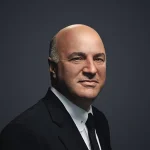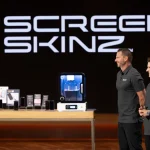
For years, many companies in the West have relied on overseas factories to keep expenses low. It became almost a standard way of doing business once global supply chains took shape in the early 2000s.
It offered a simple way to cut expenses and scale quickly. Labor and materials cost less in developing regions, so production costs drop while profits rise. Cheaper labor and production meant bigger earnings, while western shoppers enjoyed friendlier price points on the shelf.
Critics call it a globally and socially accepted form of neo-imperialism for profit maximization in the current exploitative capitalistic market.
Things shifted when Donald Trump pushed through sharp tariff increases during his second term. His administration pushed a hard line on global trade, aiming to bring manufacturing back within U.S. borders.
Businesses that had relied on low-cost manufacturing hubs in Southeast Asia suddenly had to rethink how and where they produced their goods. Here’s how those tariff changes cascaded into real consequences for small, product-based companies from the Tank.
Trump Trade War Impact on Shark Tank Companies
Shark Tank startups found themselves caught in the tariff storm along with countless other businesses. The policy shift threw many business plans off balance, and the disruption was more serious than many had expected.
The impact ran deeper than a minor setback as it has reshaped entire business models. Here is how these Shark Tank businesses adapted to survive.
10. Ash & Erie (From Season 8 Episode 25)
Ash and Erie carved out a niche by focusing on apparel for shorter men. It is a big market that most major brands have failed to tap into.
To keep quality up and costs manageable, their production network stretched across Peru, Mexico, Vietnam, and China. The model also involved certain items moving through several countries for completion.
When the tariff wave arrived, orders already in motion suddenly became more expensive. A few seasonal items slipped through at the old rates, but many others became far pricier than planned. It strained their budget and threw off their entire launch schedule.
9. Dingle Dangle (From Season 15 Episode 11)
Stewart Gold’s Dingle Dangle gained traction with parents because it kept babies busy during changes and doubled as something safe to chew on. Trump’s trade wars forced them to change their manufacturing methods, and the team had to look for manufacturing options beyond China.
No factory they approached could offer the same pricing or reliable output. Shifting the whole production to several factories in the United States was an option. But it increased the chance of manufacturing defects and added new complications to an already delicate process.
8. Lectec (From Season 16 Episode 11)
Lectec turns engineering into play by letting users build small electric vehicles from scratch. The company’s supply chain is tightly tied to China for crucial parts, including motors and electronic boards.
When tariffs rose overnight, Lectec’s margins took a hit. The team was forced to weigh two difficult paths. Either push pre-order deliveries into a later window or increase the retail price by about $150 on kits already priced near $380.
7. Bucket Golf (From Season 16 Episode 2)
Tyler Simmons turned a homegrown idea into a fast-moving golf brand after appearing on Shark Tank. Then came in tariffs that changed things, and not for the better.
A product that used to run him about fifty-five bucks to make suddenly cost nearly triple that. It was a tough blow (to say the least) for a young business like Bucket Golf that was still building momentum.
6. NightCap (From Season 12 Episode 8)
NightCap built its reputation on a clever female-friendly idea. It is essentially a scrunchie that hides a drink cover, so people don’t have to worry about their drinks getting roofied.
To keep it affordable, Michael Benarde produced the product in China, where manufacturing stayed budget-friendly.
Things took a sharp turn when he sent a shipment worth about six thousand dollars to the UK and got hit with roughly twelve hundred dollars in tariff fees. That surprise expense made his cost structure wobble and left him rethinking how to price and ship going forward.
5. ZipString (From Season 14 Episode 9)
ZipString is a little launcher that shoots a ring of string into the air. But unfortunately, every motor that powers the toy comes from China. When tariff rates went toward 145%, the cost of making it jumped far beyond what their pricing could support.
Raising prices would have pushed stores away, so the team put a halt to production instead. While they were reworking cost-effectiveness, copycat versions started popping up in the market. It was a frustrating setback for a product that had real momentum.
4. Scrub Daddy (From Season 4 Episode 7)
Scrub Daddy is one of the most loved and widely popular products to appear on Shark Tank. Although the product is mostly American-made, some parts of production take place south of the border in Mexico.
When tariff talks were at their peak, founder Aaron Krause worried that they might get hit with fees when products crossed into Mexico and again when they returned to the States.
Luckily, a trade agreement kept them in the clear. But Krause later described that period as very shaky for his company, with plans changing whenever Donald Trump had a new tweet on X.
3. Tucky’s Fashion Fix (From Season 14 Episode 22)
Tucky started as a simple hack for shaping a hoodie and blew up online. Brooke Knaus followed up with Stitchy, and both products were made overseas for about $5 each, which helped them scale quickly.
That was before tumultuous Trump tariff waters set in. Brooke Knaus had a big order of fifty thousand units on the way, and that’s when the new tariff rules kicked in. An otherwise smooth delivery turned into a very costly problem for the company.
2. Guardian Bikes (From Season 8 Episode 21)
Brian Riley built Guardian Bikes with a simple mission after his grandfather was injured in a crash. The company’s mantra was to make kids’ bikes that stop safely and give parents peace of mind.
The company had outsourced manufacturing to the U.S., Vietnam, and Brazil, so they weren’t tied to one source. That choice paid off when tariffs hit Chinese bike components.
Many brands faced steep cost spikes, but Guardian stayed on track because most of their parts no longer came from China. Without that pressure, they avoided a price jump that could have pushed each bike up by about 150 dollars.
1. Rinseroo (From Season 16 Episode 10)
Rinseroo is a slip-on hose that connects to a showerhead, turning it into a handheld rinsing tool without requiring permanent installation. It didn’t cost much to produce, which added to the growing popularity.
Manufacturing in China kept costs low at just under four dollars each, making it affordable with viable profit margins.
But then Trump tariffs caused a major upheaval in the showerhead paradise. Importing the same hose suddenly costs more than double, at $8.67. And there was barely any space for profits.
The company pulled back on marketing, and the employees were informed of possible cuts. Growth had turned into survival mode overnight.
Adapt or Sink in a Shifting Trade Landscape
Low-cost manufacturing only works when the world stays steady, and lately it has been anything but that. Many of these businesses were hinged on stable pricing and smooth cross-border production.
All of this is a harsh reminder that global trade isn’t stable ground, no matter how strong a product or idea may be. Rules shifted with little warning, sometimes in the space of a tweet, and entire budgets fell apart.
Large companies can usually find loopholes, but smaller businesses don’t have that luxury. Flexibility, adaptability, and preparing for the worst are the new real costs of staying in the game.




















